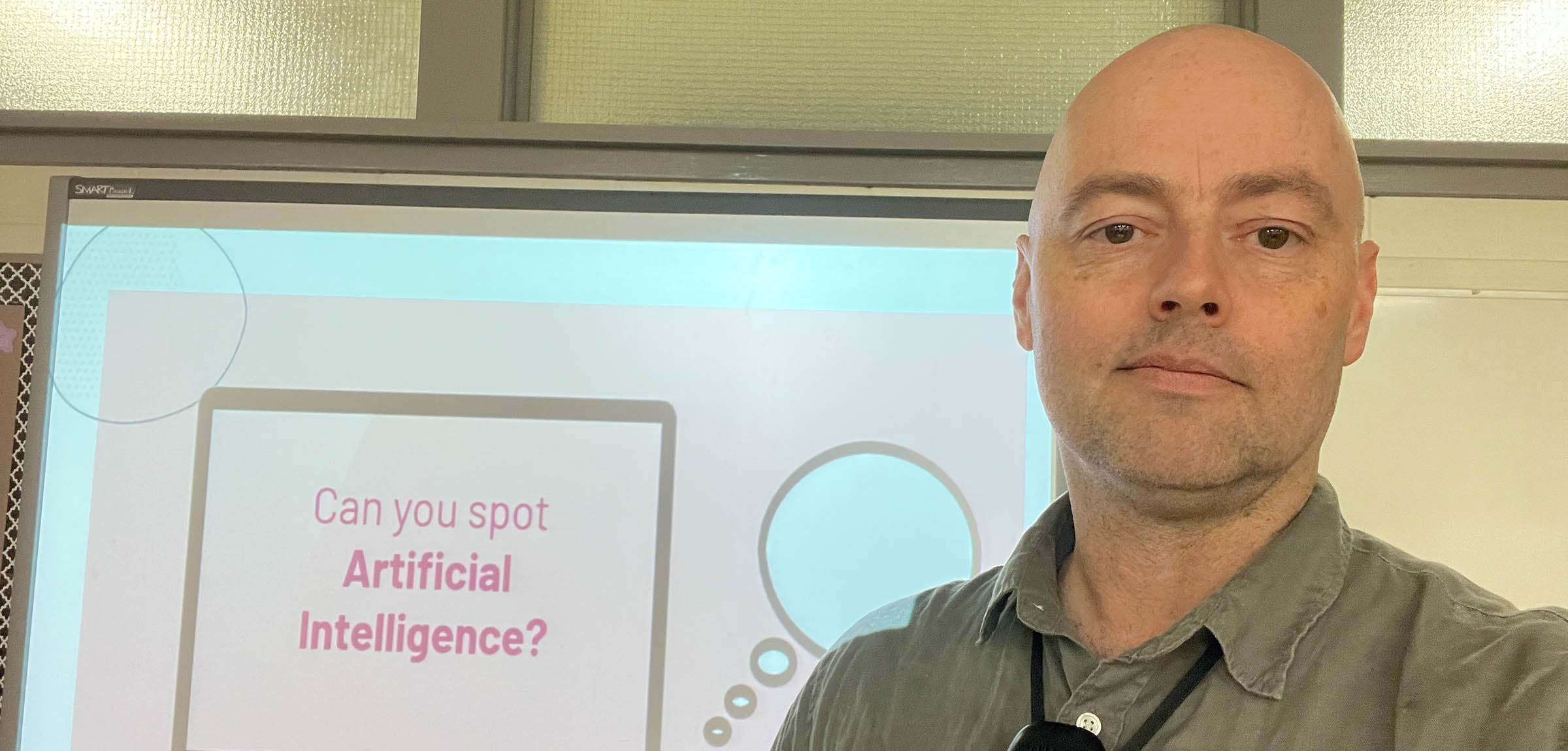To mark Media Literacy Week, Grade 5 teacher Aaron Ball taught his students about a quickly evolving area connected to media literacy: artificial intelligence (A.I.).
Media literacy, the ability to access and critically analyze the media messaging that we consume, has become central to Ball’s language arts and social studies lessons. The concept, Ball says, informs their classroom conversations around current events and how messages are framed.
“We look at finding credible sources of information,” he says, “and A.I. can really be part of this and help us think about media bias and where information comes from.”
Ball felt that Media Literacy Week, held Oct. 21–25 across Canada, was the perfect opportunity to bring A.I. into the conversation.
“I’m pulling in A.I. for Media Literacy Week because kids are starting to ask questions about A.I. and we can start to have discussions about what they think it’s for, how they can use it.”
Aiming to increase students’ awareness of the A.I that exists all around them, Ball sees value in teaching students early on about A.I.’s applications and its risks. With this in mind, he is teaching lessons that have been created in partnership with the Alberta Machine Intelligence Institute (Amii).
“There are A.I. tools that students can use without creating a profile or putting in their information,” Ball says. “These tools help show students how A.I. works and its limitations.”
By introducing A.I. in a curricular context, Ball hopes students will start thinking about how they interact with, create and consume information generated by A.I. — and how they can do so with a more critical eye.
“We can’t just accept what A.I. pushes out. We really have to be discerning with the information it gives us.”
For Ball, the link between A.I. awareness and media literacy is clear.
“Whether it is a lesson on how we use A.I. or a lesson focused on credible news articles, we are looking at differentiating the fake from the fact, and that is an important skill for our students.”
Media Literacy Week is held every fall in Canada to promote digital media literacy. Information and resources are available thought Media Smarts — Canada’s Centre for Digital Media Literacy. Teacher resources on A.I. literacy are available for K–12 through Amii |



